Were You Placed on the MATCH List Due to Excessive Chargebacks?
November 30, 2023
Here’s How Early MATCH List Removal Works
January 26, 2024How Did I Get On The Mastercard MATCH List?
The Mastercard MATCH List is one exclusive list you and your business do not want to be a part of. It is damaging and can cause long-term, devastating consequences for you, your business partners, and your families. There are many ways you can be placed on the Mastercard MATCH List. If you have been placed on the Mastercard MATCH List, we are here for you. Keep reading to learn more about the Mastercard MATCH List, the criteria for being placed on it, and how you can get early removal ASAP.
What is the Mastercard MATCH List?
The Mastercard MATCH List, which stands for Member Alert to Control High-Risk Merchants, is a comprehensive database. It is an industry blacklist of sorts, which contains a large amount of information regarding you, your business partners, and much more. Mastercard created it (and is still managed by them today), helps inquiring banks determine whether or not they want to open a merchant account for you, and helps banks understand the risks of the merchants they currently have, allowing them to cut ties if need be.
The Mastercard MATCH List Criteria
Wondering how you got placed on the Mastercard MATCH List? There are thirteen possible reasons why you were placed on the list. The most common reasons include excessive chargebacks and PCI Data Security Standard Noncompliance. The best way to know why you were placed on the MATCH List is by calling your bank and asking.
Account Data Compromise
Mastercard states that you can be placed on the MATCH List if an occurrence that results, directly or indirectly, in the unauthorized access to or disclosure of Account data.
Common Point of Purchase (CPP)
If you were placed on the MATCH List for this reason, it is because account data is stolen at the Merchant and then used for fraudulent purchases at other Merchant locations.
Laundering
The Merchant was engaged in laundering activity. Laundering means that a Merchant presented to its Acquirer Transaction records that were not valid Transactions for sales of goods or services between that Merchant and a bona fide Cardholder.
Excessive Chargebacks
With respect to a Merchant reported by a Mastercard Acquirer, the number of Mastercard chargebacks in any single month exceeded 1% of the number of Mastercard sales Transactions in that month, and those chargebacks totaled USD 5,000 or more.
With respect to a merchant reported by an American Express acquirer (ICA numbers 102 through 125), the merchant exceeded the chargeback thresholds of American Express, as determined by American Express.
Excessive Fraud
The Merchant effected fraudulent Transactions of any type (counterfeit or otherwise) meeting or exceeding the following minimum reporting Standard: the Merchant’s fraud-to-sales dollar volume ratio was 8% or greater in a calendar month, and the Merchant effected 10 or more fraudulent Transactions totaling USD 5,000 or more in that calendar month.
Fraud Conviction
If there was a criminal fraud conviction of a principal owner or partner of the Merchant, you and your business can be placed on the Mastercard MATCH List.
Mastercard Questionable Merchant Audit Program
The Merchant was determined to be a Questionable Merchant as per the criteria outlined in the Mastercard Questionable Merchant Audit Program. Usually, this is because the merchant participated in inappropriate or fraudulent activity.
Bankruptcy/Liquidation/Insolvency
If a business has filed for bankruptcy, liquidation, or insolvency, it is likely the Merchant was unable or is likely to become unable to discharge its financial obligations. This is important for banks to know, and this is why it can get you on the Mastercard MATCH List.
Violation of Standards
With respect to a Merchant reported by a Mastercard Acquirer, the Merchant was in violation of one or more Standards that describe procedures to be employed by the Merchant in Transactions in which Cards are used, including, by way of example and not Cardholders, minimum/maximum Transaction amount restrictions, and prohibited Transactions set forth in Chapter 5 of the Mastercard Rules manual.
With respect to a merchant reported by an American Express acquirer (ICA numbers 102 through 125), the merchant was in violation of one or more American Express bylaws, rules, operating regulations, and policies that set forth procedures to be employed by the merchant in transactions in which American Express cards are used.
Merchant Collusion
The Merchant participated in fraudulent collusive activity. Collusion occurs when entities or individuals work together to influence a market or pricing for their own advantage. Acts of collusion include price fixing, synchronized advertising, and sharing insider information. Antitrust and whistleblower laws help to deter collusion.
PCI Data Security Standard Noncompliance
The Merchant failed to comply with Payment Card Industry (PCI) Data Security Standard requirements. Wondering what those are? We have a dedicated blog regarding this particular reason code since it is one of the most common ways of being placed on the Mastercard MATCH List and one of the easiest ways to avoid getting placed on it.
Illegal Transactions
If the Merchant was engaged in illegal Transactions, then they can be placed on the Mastercard MATCH List.
Identity Theft
The Acquirer has reason to believe that the identity of the listed Merchant or its principal owner(s) was unlawfully assumed for the purpose of unlawfully entering into a Merchant Agreement.
How Do I Get Off The Mastercard MATCH List?
Are you on the MATCH List? Don’t worry, you won’t be suck on it forever. There are two ways you can get off the Mastercard MATCH List, including waiting the five-year period or seeking early removal.
Waiting Five Years and Aging Off the List
Anybody who gets placed on the Mastercard MATCH List will automatically age off of the list after five years. At this point, they can try to get another merchant account and resume business as normal. However, this is very difficult for most, if not all, businesses to survive.
Being placed on the Mastercard MATCH List brands you as “high-risk,” meaning that most processors won’t want to work with you. There are many high-risk processors that might; however, they come along with hefty monthly fees and lengthy contracts.
Seek Early Removal
Another way you can get off the Mastercard MATCH List is by seeking early removal. There are two ways you can get off the MATCH List early. They include:
- Talking to your bank. Call up your bank and see if they are willing to work something out with you. If it’s a simple issue, such as clearing up a violation or proving that it is a mistake, they may choose to remove you. However, this is usually very difficult to do and is a pretty rare occurrence.
- Work with a professional. Our legal team can help you get off the Mastercard MATCH List. This list can be tough to navigate, but we are here to help and fight for you.
Win Early Removal from MATCH with TFM Law
If you have found yourself on the Match List, we can help you. The Law Offices of Theodore Monroe focuses on litigation and counseling in payments, credit card processing, e-commerce, direct response marketing, and Federal Trade Commission enforcement. Last year, the firm got 100% of the people who came to us off the MATCH list.
Theodore F. Monroe, Founder of TFM Law, has successfully:
- Represented merchants recovering funds from processors
- Structured processing relationships to comply with Card Brand requirements
- Drafted and negotiated contracts involving payment facilitators and ISOs
- Represented continuity merchants in compliance and litigation issues
- Fought for numerous companies in suits brought by the Federal Trade Commission and obtained excellent results for firms in the digital products, loan modification, government grant, and nutraceuticals industries
Before opening his firm, Mr. Monroe practiced law with Crosby, Heafey, Roach & May (now Reed Smith LLP) and Lewis, D’Amato, Brisbois & Bisgaard (now Lewis, Brisbois, Bisgaard & Smith), where he defended numerous accounting and law firms in professional liability actions, and insurance carriers in bad faith actions.
Before becoming a lawyer, Mr. Monroe worked as a forensic accountant at Coopers & Lybrand, which provided him with a background in forensic accounting and financial analysis that is unique among litigators in Los Angeles. Mr. Monroe studied at Duke University Law School, achieved a BS with Honors, Accounting, the University of Kentucky, and is a member of the California and Kentucky State Bar.
For more information on the Mastercard MATCH List and getting off it, visit us at howtogetoffmatch.com!




